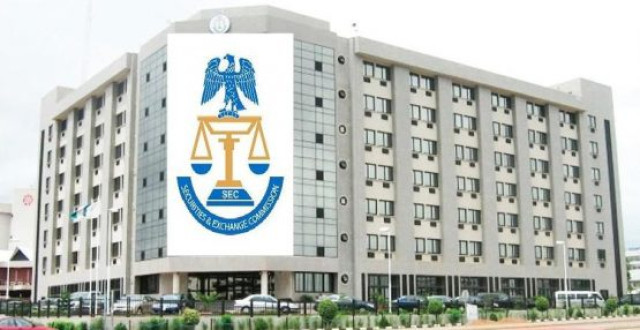LAGOS, Nigeria (NAN) - The Securities and Exchange Commission (SEC) has identified limited investor participation, regulatory hurdles and macroeconomic instability as key obstacles hindering the capital market’s contribution to the nation’s one trillion dollar economic goal.
SEC director-general, Emomotimi Agama said this at the 2024 SEC Journalists Academy held Tuesday in Lagos.
Agama said these challenges must be addressed to achieve the full potential of the capital market for the one trillion dollar economy.
However, Agama said the capital market, despite these challenges, had helped develop the nation’s economy.
He noted that the federal government had raised significant capital, by issuing six Sukuk to fund road projects across the six geo-political zones.
The director-general emphasised the need for a vibrant capital market in achieving the federal government’s target.
Agama noted that the journey demands collective effort from policymakers, ensuring an enabling environment and businesses leveraging market opportunities.
According to him, more importantly, it involves journalists who communicate the market’s value to the broader public.
He added that financing critical national projects, especially in infrastructure, is a significant pathway to economic transformation.
The director-general stated that Nigeria had already demonstrated how the capital market could fund these needs through innovative instruments like sovereign bonds and a number of Sukuk.
The SEC boss said this innovative funding approach reduced the reliance on external borrowing while driving job creation and improved logistics and regional integration.
He added that the issuance of green bonds had further cemented the role of the capital market in supporting Nigeria’s transition to a low-carbon economy, addressing both infrastructure and environmental sustainability.
He said the listing of firms such as Dangote Cement and BUA Group underscores how the capital market supports industrial growth and job creation.
Agama said, “The total market capitalisation of the Nigerian Exchange Limited stood at N60 trillion by December 13, a testament to the growing role of the private sector in driving national economic outcomes.
“One of the most remarkable opportunities within the capital market is its ability to democratise wealth creation. This is through vehicles like collective investment schemes, retail bonds, and exchange-traded funds; the market provides access to financial products for Nigerians across income levels.
“Beyond government financing, the capital market is a vital enabler of private sector growth.”
He added that companies in Nigeria had utilised the market to raise capital, expand operations, and compete globally.
Agama said, “A prime example is MTN Nigeria, whose public offering in 2021 attracted significant local investor participation, broadening its shareholder base while showcasing the strength of our market. As we navigate the complexities of Nigeria’s economic landscape, the capital market emerges as a cornerstone in the pursuit of sustainable growth and development.
“The capital market is the engine that drives economic progress by channelling resources from savers to those who need capital for productive use. Globally, countries that have achieved economic milestones, whether in industrialisation, infrastructure, or innovation, have relied heavily on the capital market to mobilise and allocate resources efficiently.
“However, through concerted efforts by stakeholders, including the Securities and Exchange Commission, market operators, and policymakers, we are laying the foundation for an inclusive, efficient, and globally competitive capital market.”
According to him, the rise of the retail bond market has enabled ordinary Nigerians to participate in the nation’s economic growth. The director-general said that the federal government introduced the savings bond to expand the retail investor base in the market, and investors received it well in recent times.
He mentioned that the introduction of fintech platforms had further simplified access to investment opportunities, driving financial literacy and inclusion.
Agama said numerous retail investors actively participate in the Nigerian capital market, emphasising the government’s commitment to growing the participation.
He noted that the role of the capital market also extends to state governments, offering a sustainable avenue for financing projects.
The SEC boss added that sub-nationals like Lagos and Ogun, among others, had leveraged bond issuances to fund infrastructure, education, and healthcare projects.
Agama urged journalists, as custodians of public knowledge, to amplify the capital market’s impact by shaping narratives that would inspire trust and participation.




















